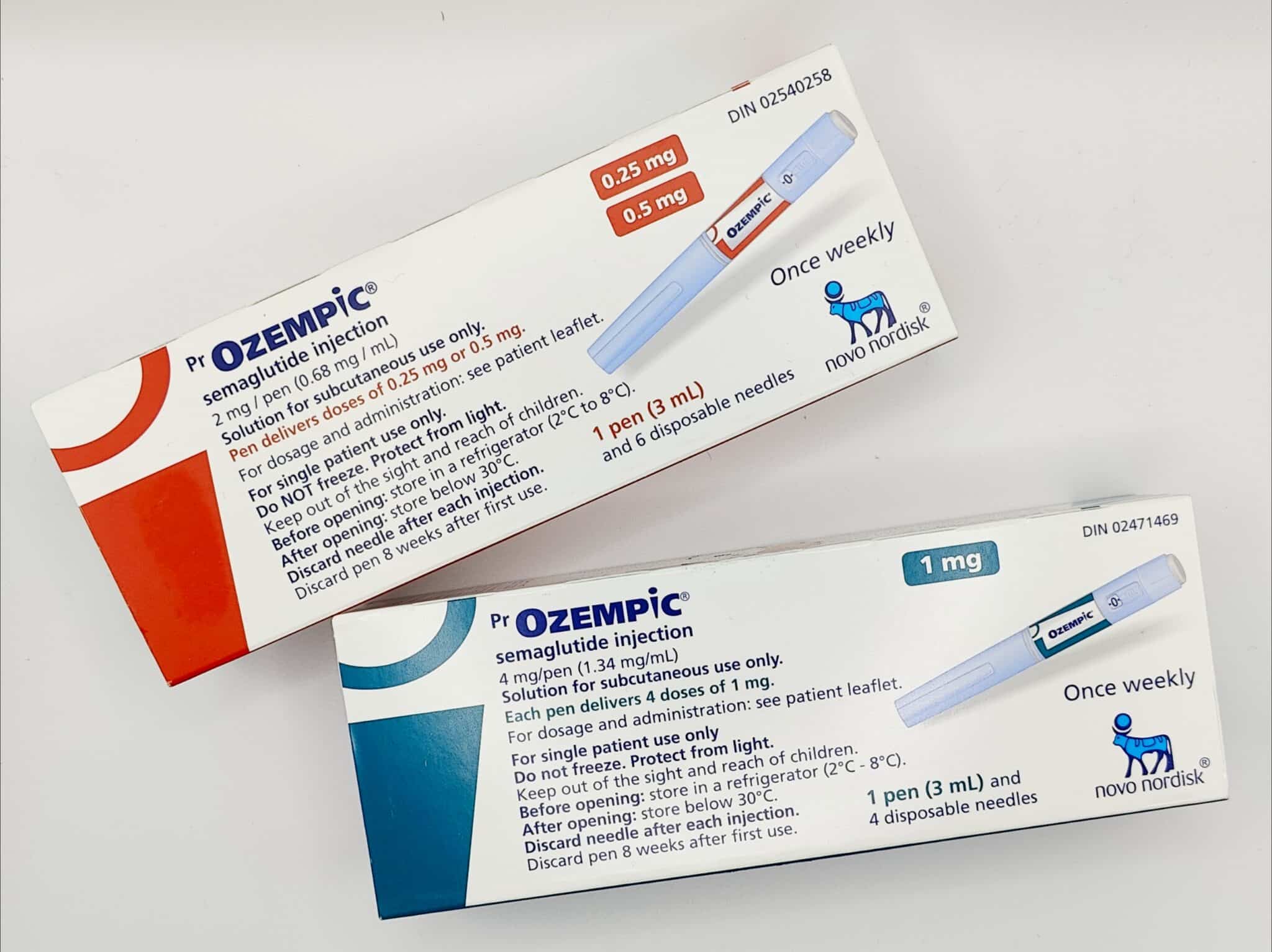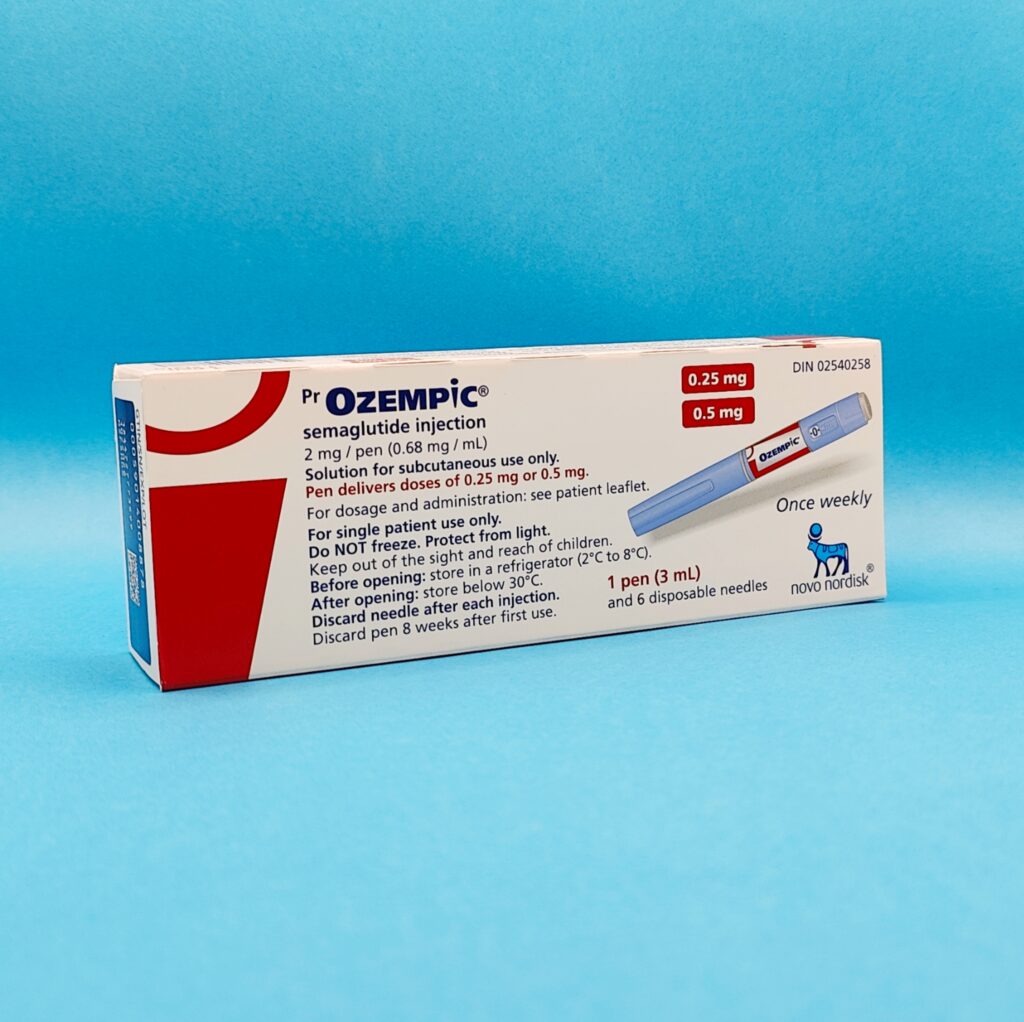Can You Take Ozempic If You Have Hypothyroidism?
Can You Take Ozempic If You Have Hypothyroidism?
- Todd P
If you’re managing hypothyroidism and considering Ozempic (semaglutide) for weight loss or blood sugar control, you’re not alone in wondering if these medications are compatible. While Ozempic is generally safe and effective for many people, those with hypothyroidism should take a closer look at potential interactions and consult their doctor before starting treatment.
Here’s what you need to know about taking Ozempic with hypothyroidism, including drug interactions, family history considerations, and why involving your healthcare provider is essential.
What Is Ozempic and How Does It Work?
Ozempic is a once-weekly injectable medication used to manage type 2 diabetes and promote weight loss. It belongs to a class of drugs called GLP-1 receptor agonists, which work by:
- Increasing insulin secretion after meals.
- Slowing digestion to help you feel fuller longer.
- Reducing appetite and overall food intake.
For people managing both diabetes and weight, Ozempic offers significant benefits, but it’s essential to ensure it’s safe for those with other conditions, like hypothyroidism.
What Is Hypothyroidism?
Hypothyroidism occurs when your thyroid gland doesn’t produce enough thyroid hormones. These hormones regulate many body functions, including metabolism, heart rate, and energy levels. Common symptoms include fatigue, weight gain, and sensitivity to cold. Hypothyroidism is typically managed with synthetic thyroid hormones, such as levothyroxine.
Can You Take Ozempic If You Have Hypothyroidism?
The short answer is yes, but with caution. Hypothyroidism itself is not a contraindication for Ozempic. However, several factors must be considered before starting Ozempic:
Medication Interactions
- There are no direct interactions between Ozempic and thyroid hormone replacement medications like levothyroxine. However, taking them too close together may affect how well your body absorbs thyroid medication.
- To avoid issues, take your thyroid medication as directed by your doctor, typically on an empty stomach, and wait at least 30 minutes to 1 hour before eating or taking other medications.
Thyroid Tumor Risk (Medullary Thyroid Carcinoma – MTC)
- Ozempic carries a warning about the potential risk of thyroid C-cell tumors, including medullary thyroid carcinoma (MTC). This risk has primarily been observed in animal studies and is not confirmed in humans. However, individuals with a personal or family history of MTC or Multiple Endocrine Neoplasia syndrome type 2 (MEN 2) should not take Ozempic.
Family History
- If you have a family history of thyroid cancer or MEN 2, disclose this to your doctor before considering Ozempic. Even though the risk is low, it’s essential to err on the side of caution.
What to Discuss with Your Doctor
Before starting Ozempic, talk to your healthcare provider about:
Your Thyroid Condition
- Share details about your hypothyroidism, including your current medication dosage, symptoms, and any recent thyroid function test results.
Family History
- Inform your doctor if anyone in your family has had thyroid cancer, particularly MTC, or MEN 2. These conditions may contraindicate the use of Ozempic.
Other Medications
- Provide a full list of medications and supplements you’re taking. While Ozempic is generally safe, knowing all potential interactions helps avoid complications.
Monitoring Needs
- Your doctor may recommend regular thyroid function tests and monitoring for signs of thyroid abnormalities while on Ozempic, especially if you’re at higher risk due to family history.
Potential Side Effects to Watch For
While taking Ozempic, be aware of possible side effects that may overlap with thyroid issues:
- Nausea or Vomiting: Common with Ozempic but could also indicate a thyroid imbalance.
- Neck Swelling or Hoarseness: Rare but could signal thyroid-related issues. Notify your doctor immediately if these symptoms occur.
- Changes in Energy Levels: Fatigue is common with both hypothyroidism and Ozempic’s initial use, so discuss any concerns with your healthcare provider.
Home and Lifestyle Tips
Managing both hypothyroidism and weight loss requires a well-rounded approach. Here are some tips to help you stay on track:
Stick to Your Medication Schedule
- Take thyroid medication as prescribed and ensure Ozempic injections are done on schedule to maintain consistent results.
Monitor Your Diet
- Eating a balanced diet rich in lean protein, whole grains, and vegetables can support both weight loss and thyroid function.
Exercise Regularly
- Incorporate low-impact activities like walking or yoga, which can help boost metabolism and energy levels.
Should You Take Ozempic with Hypothyroidism?
For many people with hypothyroidism, taking Ozempic is safe and can be an effective tool for weight loss and blood sugar control. However, it’s crucial to involve your doctor and pharmacist in the decision. By discussing your medical history, family risks, and medication interactions, you can ensure Ozempic is a safe option for you.
If you’re ready to explore Ozempic as part of your health journey, consult your healthcare provider and take steps to monitor your progress. With the right care, you can manage both hypothyroidism and weight effectively!
References:
1. Ozempic Official Website
https://www.ozempic.com/
2. American Thyroid Association – Hypothyroidism
https://www.thyroid.org/hypothyroidism/
3. FDA Medication Guide for Ozempic
https://www.fda.gov/media/108202/download
4. Endocrine Society – GLP-1 Agonists and Thyroid Risks
https://www.endocrine.org/
5. Mayo Clinic – Thyroid Disease Overview
https://www.mayoclinic.org/diseases-conditions/thyroid-disease/symptoms-causes/syc-20375463


